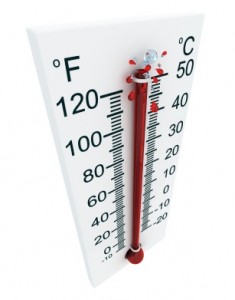Categories
- Audit
- Builders Risk
- Business Auto
- Carriers
- Certificate of Insurance
- Computer Technology
- Construction Defect
- Contractors Pollution Liability
- Court Rulings
- Employment Practices Liability
- General Liability
- Green Building
- Health Care
- Home Inspectors
- Home Owners Warranty
- Idemnification / Hold Harmless
- Insurance Audit
- News
- Pollution
- Remodeling
- Resourceful Information
- Risk Management
- Sadler Client Profile
- Workers' Compensation
Contractors On Job Heat Illness
Signs, symptoms and prevention tips
We see you out there building our homes, paving our roads and maintaining our infrastructure. As a contractor, there isn’t much that slows you down. When a job is on the line, you and your crew will work through just about  any conditions to get it done: Rain, sleet, snow, and heat of sun?
any conditions to get it done: Rain, sleet, snow, and heat of sun?
We know just how draining it can be to spend all day outside working in the sun. Heat exhaustion is the enemy of all who work outdoors. Protect your employees and know the signs of heat stress.
Know the signs and the difference
Did you know it can take your workers upwards of two weeks to acclimate themselves to working outdoors? As an employer it is your duty to educate your staff on the signs and symptoms of heat stress and how to differentiate heat exhaustion from its more serious counterpart, heat stroke.
Heat Exhaustion
- Irritability and confusion
- Darkened urine
- Clammy skin
- Excessive thirst
- Nausea
- Headache/light-headedness
Heat exhaustion can be treated with rest and increased fluid intake. Left untreated, the body loses its ability to maintain temperature control resulting in heat stroke.
Heat Stroke
- Skin that is hot to the touch and is sweat free
- Irrationality and bewilderment
- Cramping muscles
- Seizures and/or loss of consciousness
Prevention
Heat stroke can be fatal. It takes only a momentary loss of consciousness for disaster to strike. Imagine if one of your workers took a tumble from a rooftop because they were not properly hydrated. You work hard to regularly ensure their safety, take the next step and make sure your employees are properly educated on preventing heat stress.
Tips for preventing heat stress
- Wear lightweight, loose, and light colored clothing to help keep body temperature down when the heat index rises
- For those required to wear hardhats, secure a small, cool, wet cloth on your head before putting on your hard hat; this will help heat escape
- Be aware of any medications that may lower your tolerance to rising temperatures
- Stay hydrated
Protect you Workers Comp loss record
Furthermore, these safety tips will help to protect your workers compensation loss history and experience modification which translates into lower premiums in the future.
Source: “Hidden Danger, Plain as Day,” Builders Mutual Insurance; South Carolina Builder Journal, Volume 6, Issue 4 2013.
-
Recent News
- Post-recession Homebuilding Market on the Rise
- Collecting Certificates of Insurance from Subcontractors
- How to Properly Deduct from Uninsured Subcontractors
- Construction Defects and Mistakes
- Why Join a Home Builder Association?
- Workplace Safety Policy Includes a Return-to-Work Plan
- Will drones work with insurance claims adjusters?
- Builder’s gross negligence ends in $20.8 million award
- Surviving the dreaded insurance audit (Infographic)
- Architect jailed for improper fireplace installation
- Safety Costs to Soar Over New OSHA Regulations
- Home Inspector Dodges Liability
- Common Respiratory Dangers on Construction Jobsites
- Building Design Impacts Slip/Trip/Fall Hazards
- Contractors On Job Heat Illness
- Invalid Insurance Leads to Lawsuit in Building Collapse
- Sadler Client Profile: Top Hat Sweepers
- Beware Hold Harmless and Indemnification Provisions
- A Case for HBW 2-10 Warranty
- Top Traffic Ticket Excuses